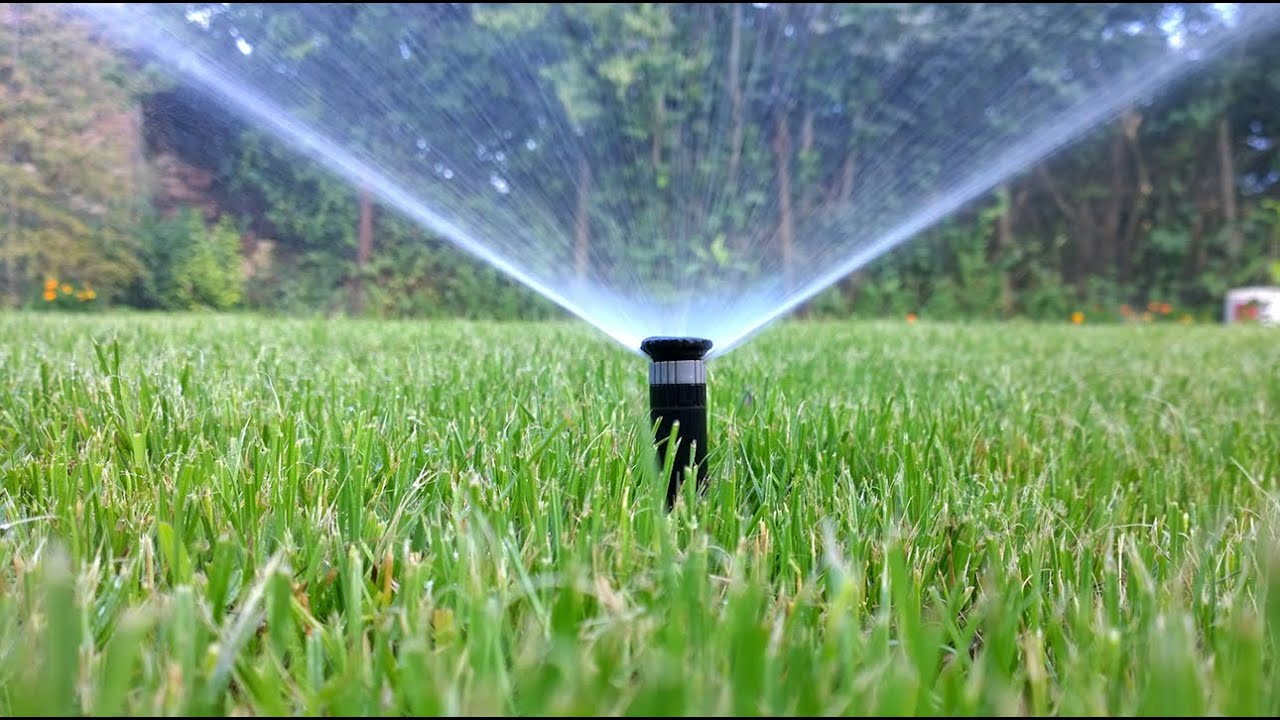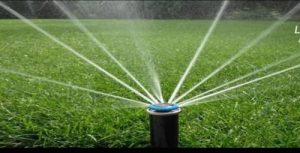
We all know that having a great irrigation system on your farm is essential to producing the best crops. However, irrigation and spraying can be labor-intensive, considering they should be done regularly. Choosing the best sprinkler irrigation system for your farm can be a daunting task, considering there are many different brands and types in the market. Sprinkler irrigation facilitates efficient water usage and can be used to improve crop productivity. It’s also adaptable for fertigation, reduces disease problems, and requires less labor and maintenance.
To help simplify your irrigation system decision, we’ve put together a comprehensive guide to help you choose the best sprinkler irrigation system for your farm. This overview will cover the different types of sprinkler systems, their benefits and how they work, and some tips on choosing the right one for your needs.
Factors that affect your choice of a sprinkler
Here are a few factors that you should consider when selecting a sprinkler irrigation system:
- The size and layout of your farm
- The type of crops that you are growing
- The water source (piped, surface, or deep well)
- Soil type
- Climate and rainfall levels
Consider the size of your farm.
The size of your farm will dictate the type of sprinkler irrigation system you need. If you have a small farm with a limited water supply, you will most likely need an irrigation system that uses surface water or drip systems. If your farm is more extensive and has access to higher volumes of water, then you may want to consider using a deep well sprinkler irrigation system.
The layout of your land can also impact the type of irrigation system that is necessary. For example, if your land slopes downhill, installing a subsurface irrigation system to provide water to your crops may be required. Conversely, a surface irrigation system may be sufficient if you have flat land.
Consider the type of crops you grow.
Different crops require different amount of water. If you grow crops that need a lot of water, you will need a more sophisticated irrigation system that can provide a high volume of water. If you grow crops that require less water, a simple hand-held sprinkler will do the trick. Dig a well. This will determine the size of your irrigation system. Once you have determined what type of irrigation system you need, it is necessary to dig a well to locate the exact spot where your sprinkler will be installed and connect the various pipes and valves.
The type of crop you are growing can also dictate the type of sprinkler irrigation system necessary. If you are growing crops such as tomatoes or peppers, it may be best to use a drip irrigation system due to their high water requirements and the need for consistent watering throughout the day. A surface irrigation system may be sufficient for crops such as cotton or corn.
Consider the type of soil you have.
Some soils are more absorbent than others. You will need a more sophisticated irrigation system to distribute water more evenly if you have porous soil. Certain agricultural irrigation systems use pressurized water to push the water through the soil and reach the plants. Soil type is also important for irrigation because certain types of plants require water in specific parts of the plant. For example, cotton and corn need moisture at the base of the plant, while other types such as tomatoes or peppers do not.
Climate and rainfall levels
The climate and rainfall levels in your area will also play a role in determining the type of irrigation system that is necessary. Live in an arid or semi-arid region. It may be best to install a desert landscaping irrigation system that uses drip irrigation to distribute water evenly throughout the soil. On the other hand, using surface irrigation may be sufficient if you live in an area with high rainfall levels
The source of water
Sprinkler irrigation systems are used to ensure optimal growth and harvest of different crops during the growing season. The source of your irrigation water can also impact the type of sprinkler irrigation system needed. If your water comes from a municipal water supply, you will need an automatic system capable of watering multiple zones at once. If your water comes from wells or reservoirs, you may only need a hand-held sprinkler.
A pipe-based sprinkler irrigation system can be installed using a hand pump or power flooding systems. Deep well sprinklers are usually powered by an electric pump and require a deep well.
Once you have determined the size of your farm, the layout of your land, the type of crop you are growing, and the source of your water, you can start to determine which type of irrigation system is best suited for your needs.
What can you irrigate using sprinklers?
Sprinkler irrigation can be used to irrigate a wide variety of crops, including:
- Vegetables
- Flowers
- Fruit trees
- Small grains
- Crops that are sensitive to moisture stress, like roses or tomatoes.
- They can also irrigate lawns, specific areas of gardens, orchards, and vineyards.
Types of Sprinklers
The uniformity of water distribution across the field helps maintain productivity at high levels. An irrigation system must provide adequate and reliable water to the crop to be useful for erosion control. Besides, it needs fewer labor requirements and has a high efficiency hence maximizing water use.
There are 6 main types of sprinklers used in agricultural installations: center pivot irrigation, rotary pivot irrigation, static sprinklers, and streamers, lateral move irrigation sprinklers, and traveling gun sprinklers.
Center Pivot Irrigation
Center pivot irrigation systems are the most common type of sprinkler system used in agricultural installations. They use a pivoting arm to spray water droplets directly onto the plants below from a central source. This type of irrigation is often regarded as the best option for small-scale farms because it is cost-effective and easy to set up. However, center pivot irrigation systems have some limitations that should be considered when choosing them. Their water droplet size can be limited, which can cause problems with coverage and weed control. They are also less efficient than other irrigation systems and require more maintenance.

Here’s an example of center pivot irrigation systems
Rotary Pivot Irrigation
Rotary pivot irrigators use a similar concept to center pivots, but they rotate instead of pivoting. This allows them to cover a larger area more effectively. They are also much more efficient than center pivot systems and can be used on larger farms. However, they do require more maintenance than other types of sprinklers, and their water droplet size is also limited. They are efficient at irrigating large areas and can be used to water a variety of crops, including row crops, pastures, and orchards.

Here’s an example of rotary irrigation systems
Static Sprinklers
Static sprinkler systems use small metal discs that spin as they spray water onto plants below. This limits the amount of time the droplets stay in suspension, reducing coverage but increasing efficiency. This type of sprinkler is typically less efficient than other irrigation systems, and it’s less durable.
Center pivot irrigation systems and low-pressure sprinkler systems are ideal for low-pressure water applications. Low pressure is a high volume of water applied directly to the soil in short periods at a low frequency once or twice per day. These types of equipment usually use small diameter rigid pipes that incorporate on-board drip emitters and sensors to control the output pattern.
Streamers
Streamers are one of the newest types of sprinklers on the market and use streaming technology to deliver water droplets directly to plants below. They are very efficient, can cover large areas, and have a long lifespan. However, they are more expensive than other sprinklers and do not work in freezing weather.
Lateral move sprinkler irrigation systems
Lateral move sprinkler irrigation systems are similar to overhead systems. Water droplets are delivered from the main PVC pipe to several small sprinklers that move across the field. This allows for more even coverage and reduces water evaporation.
Lateral move systems are popular in areas that experience difficult weather conditions, as they can work in freezing temperatures without issue. They also have the advantage of covering larger areas than overhead systems.
They are effective for various crops, including row crops, orchards, and vineyards.
Traveling gun irrigation systems
Traveling irrigation systems are a good choice for farms with sandy soils. They are also suitable for irrigating crops such as row crops and fruits. They are mounted on shorter poles and move back and forth across the field.
Traveling gun sprinkler irrigation systems are the most efficient sprinkler irrigation system. They consist of a single sprinkler that moves back and forth across the field. The water is sprayed from a high-pressure hose, and the gun can be adjusted to cover the entire field.

Here’s an example of travel gun sprinklers
Choosing the right farm irrigation systems depends mainly on what you are growing, the ecological conditions, and the size of the farm. Center pivot or rotary pivot systems are both cost-effective and easy to set up, but they have limitations that should be considered when choosing them. Static sprinklers are less efficient, require more maintenance, and have a shorter lifespan than other types of sprinklers. Streamers are one of the most efficient types of sprinklers available, but they are also one of the most expensive.
Sprinklers are crucial farming equipment that provide a steady water supply and improve crop yields. They help crop growers and landscapers provide the right amount of moisture on time.
Unlike other systems, sprinkler irrigation systems have few disadvantages, with most lying on installation and runoff problems. When installing an irrigation system, it is essential to consult with a professional. They will be able to help you determine the best type of irrigation system for your specific needs and advise you on how to use it properly.
Why choose Mazero Agri-Food to install your sprinkler irrigation systems
Mazero Agri-Food has years of experience installing sprinkler irrigation systems and can help you choose the best system for your farm. We have a wide variety of systems to choose from, so we can find the right one for your specific needs. Our team is experienced in both dryland and irrigated agriculture, so we will be able to advise you on which type of irrigation system is best suited for your operation.
If you are looking for a reliable, affordable irrigation system installer, Mazero Agri-Food is perfect. Contact us today to learn more about our services.

